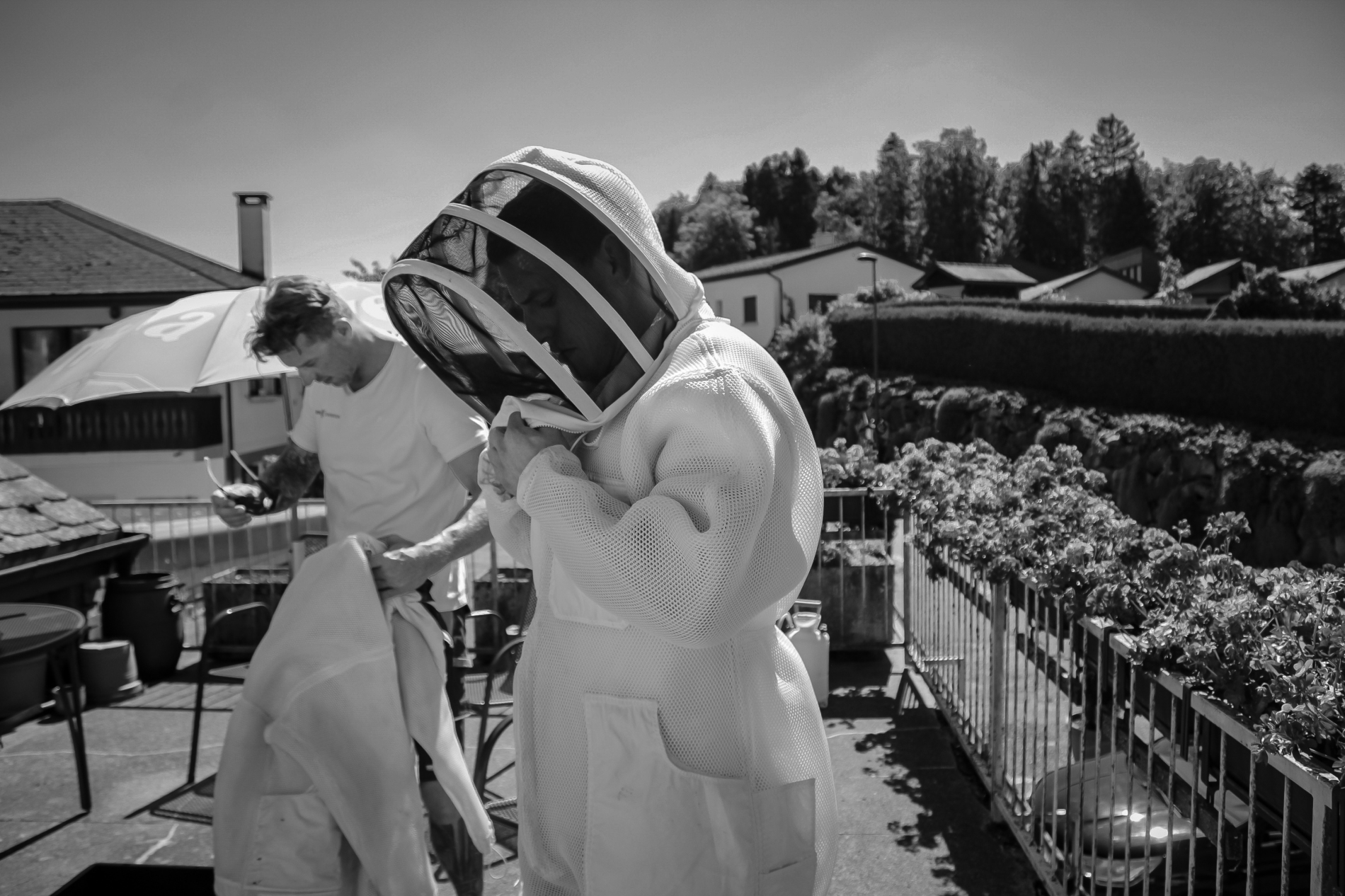
Fighting Asian hornets in Thurnen
Have you discovered an Asian hornet's nest? We'll be on site quickly! Call now - Daily Mon-Sun 07:00-21:30. Contact us now: 058 510 22 54
Having the Asian hornet's nest removed
The hornet species Vespa velutina, originally from South-East Asia, has aggressively expanded its territory to Switzerland and the surrounding subcontinent. Despite its non-aggressive behavior towards humans, it has become infamous for hunting honey bees, which has raised concerns among beekeepers. Just a few of these hornets are capable of launching an attack and eradicating an entire bee colony within a few hours. If you have discovered a hornet's nest on your house, patio, shed, or in your blind box, contact our experts for hornet nest removal in Thurnen!
Use the uncomplicated telephone service of the Hornet experts in Thurnen and simply inform us at 058 510 22 54, we will be on site quickly so that you and everyone in your area feel completely safe again.
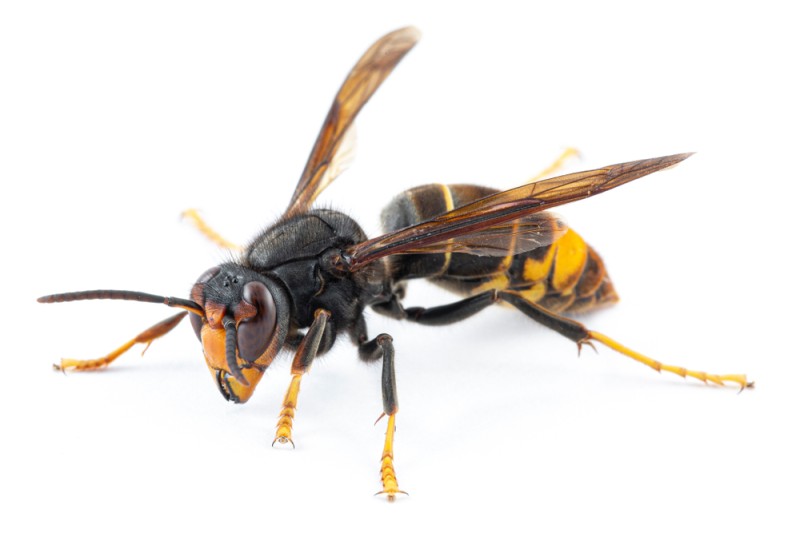
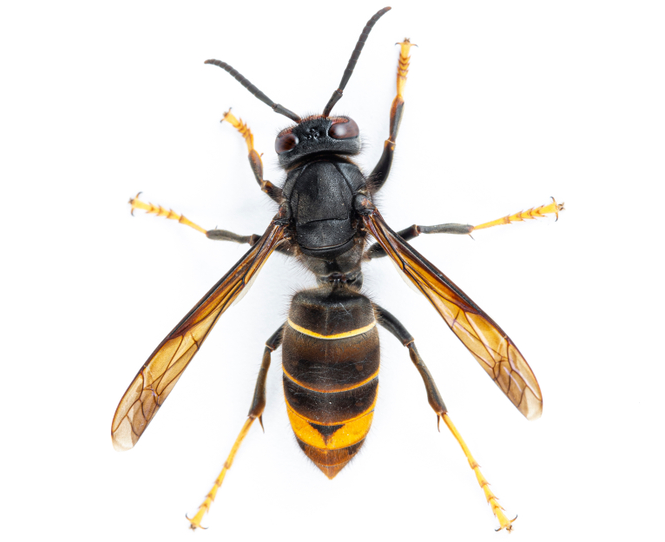
Appearance of the Asian hornet
Here are some characteristics that distinguish the Asian hornet:
1. Size: The queen can reach a length of about 3 cm, while the workers are slightly smaller and measure about 2.5 cm.
2. Color: The Asian hornet has a dark body that is almost black, with a yellow stripe at the back of the abdomen. Its face is orange-yellow.
3. Wings: The wings are dark and almost smoky gray.
4. Legs: The hornet has yellow tips on its legs, which is a striking distinguishing feature when it flies.
5. Nest: The Asian hornet's nest is often high in the trees, but it can also be found underground or in tall structures such as chimneys. It has an oval shape and is made of chewed wood, which gives the hornet a papery texture.
It is important to distinguish the Asian hornet from the European hornet (Vespa crabro), which is more harmless and a natural part of the European fauna. If you suspect you have found an Asian hornet nest near you in Thurnen, you should report this to the local authorities, or using our reporting form, as they can spread quickly and be harmful to bees and other insects. To avoid being attacked by the flying inhabitants, you should hire a professional pest controller such as the Hornet Experts Thurnen. We can identify the nest beyond doubt and take further steps to remove the Asian hornets professionally.
News about the Asian hornet in Thurnen
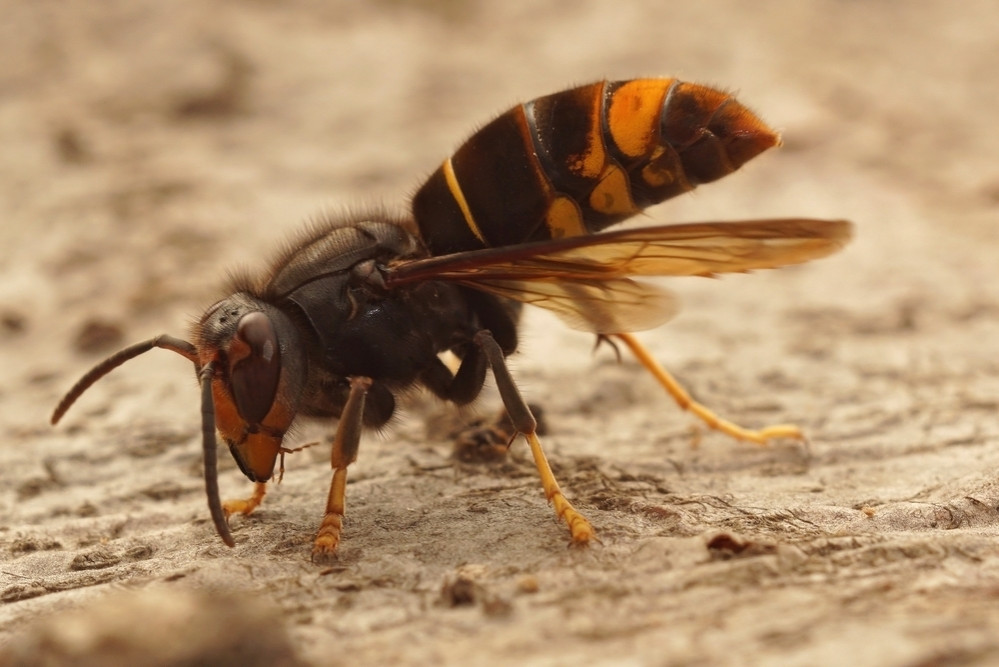
02.12.2025 Western Switzerland: Killer hornet eats bees
The territory of the Asian killer hornet has expanded considerably this year, with a notable increase reported in western Switzerland. This invasive species poses a significant threat to native bee populations, as bees make up the majority of its diet. The potential consequences are serious. Moreover, the hornet represents a danger to individuals with allergies to its venom.
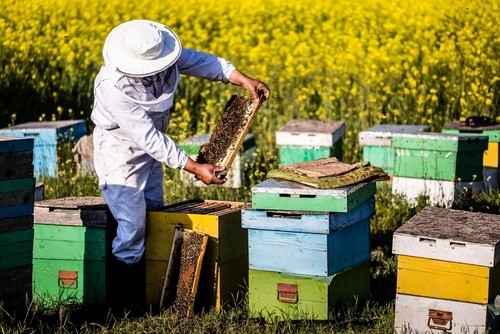
25.11.2025 Serious concerns about the bee population!
Asian hornets are inflicting significant harm on beehives across multiple parts of Europe, as reported by local beekeepers. Even a small number of hornets can destroy an entire bee colony within hours. This sharp decline in pollinators could have serious consequences for pollination, local ecosystems, and agricultural productivity.
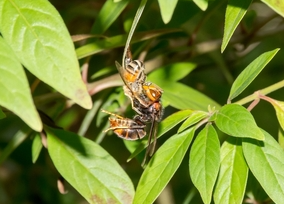
18.11.2025 Asian hornet doesn't just eat bees!
The danger it presents to insects is substantial!
The Asian hornet feeds largely on honeybees—up to 85 percent of its diet—alongside beetles and flies. This high level of predation not only poses difficulties for fruit growers but also further threatens already vulnerable bee populations.
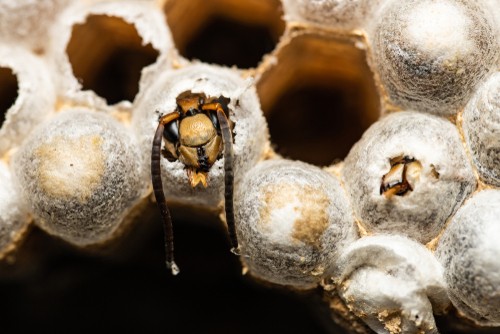
11.11.2025 How did the Asian hornet get to Europe?
The Asian hornet likely arrived in Europe unintentionally and has quickly expanded throughout France and nearby countries. Its adaptability to different environments and the absence of natural predators have contributed to its rapid spread. A single nest can generate several hundred new queens in one breeding season.
Asian Hornet Reporting Form
Please fill out all required fields and submit the form.
Help us!
If you discover an Asian hornet or a nest of this invasive species in Thurnen, it is of the utmost importance that you report it immediately. The Asian hornet is not only dangerous to humans, but also poses a serious threat to native bee populations and the ecological balance in Switzerland.
Why is it important to report the find?
In areas where it has become established, the Asian hornet exerts a substantial influence on native insects, particularly honey bees. Their feeding on bees results in a decrease in pollinator populations, ultimately impacting local flora and agricultural productivity. By reporting sightings, experts can react quickly, remove the hornets or their nests and thus prevent the spread of this invasive species.
Notification form for sightings
Protecting our native insect populations and regulating the overpopulation of Asian hornets in Switzerland is a shared responsibility. We urge you to report any suspicions or sightings through our designated reporting form. Your collaboration will enable us to take early action and mitigate the potential spread of this perilous species in our ecosystems.
Your contribution is crucial in the fight against the Asian hornet in Thurnen. Together we can protect nature and maintain the balance of our ecosystems;
Thank you for your vigilant attention and your commitment to protecting our environment.
How dangerous is the Asian hornet?
The Asian hornet (Vespa velutina) is a predatory insect that originated in Asia and has spread in recent years to various parts of Europe, including France and now also Switzerland and in Thurnen. Although it poses a threat to honey bees and native biodiversity, it is generally no more dangerous to humans than other wasp species. Nevertheless, there are some aspects to be aware of:
1. Threat to honey bees: The Asian hornet preys on honey bees, threatening native bee populations. A decline in bees can have a negative impact on pollination and thus on local flora and agricultural production.
2. Stings: As with other wasp and hornet species, the stings of the Asian hornet can also be painful. For most people, the stings are unpleasant but not dangerous. However, people who are allergic to wasp or hornet stings can suffer a severe allergic reaction, which in the worst case can lead to anaphylactic shock.
3. Aggressiveness: Although the Asian hornet is not necessarily more aggressive towards humans than other wasp species, it can become aggressive if it feels threatened, especially near its nest.
4. Ecological effects: Apart from the direct effects on honey bees, the spread of the Asian hornet can also disturb the ecological balance by affecting the populations of other insects.
Differentiating between the Asian hornet and the Asian giant hornet (*Vespa mandarinia*) is crucial. Known as the "killer hornet," the latter exhibits a significantly larger size, more powerful venom, and a larger sting, which render it potentially more dangerous to humans.
If you have discovered a nest, call us immediately: 058 510 22 54
Our hornet professionals in Thurnen are certified by the VSS.
Frequently Asked Questions About Asian Hornets in Thurnen
Capable of inflicting stings that carry the potential for serious or fatal consequences, the Asian hornet stands out as a considerably more hazardous insect when compared to most other hornet species.
With an impressive length of approximately 3 cm, the Asian hornet stands as a notable stinging insect known for its narrow, obsidian body adorned with distinctive orange, yellow, and black stripes.
Typically demonstrating a shy and non-confrontational nature, the Asian hornet can dynamically shift to an active and defensive behavior when feeling threatened or cornered.
Humans should exercise caution and avoid contact with the Asian hornet, as its venom can cause painful bites and may lead to allergic reactions.
Due to its venomous sting, the Asian hornet is a formidable danger. Its sting is more excruciating than that of other wasps and has the ability to trigger allergic reactions.
Should you observe an Asian hornet and need to make a report, it is crucial to contact either a regional officer specializing in wild bee conservation or the pertinent department within the Ministry of Agriculture.
It is vital to report Asian hornets to minimize the risk of attacks and control the spread of this insect species, which is notorious for its territorial behavior and aggressiveness.
In the context of Switzerland, proper hornet control is essential when faced with Asian hornets. It is advised to reach out to a pest control service for optimal results.
The Asian hornet is not safeguarded, but it is crucial to monitor their numbers closely to halt their expansion.
The Asian hornet's hibernation involves seeking shelter either as a group or alone, typically choosing corners of walls, buildings, garden sheds, occasional houses, or tree hollows.
Would you like more information about Asian hornets? Then take a look at our FAQ's about Asian hornets.
Private inquiry form
For an uncomplicated request to remove an Asian hornet's nest, please use our contact form for private individuals.
Real estate inquiry form
Use our property management order form to request the removal of an Asian hornet's nest.




_2.jpeg)
_2.jpeg)
_2.jpeg)
_2.jpeg)